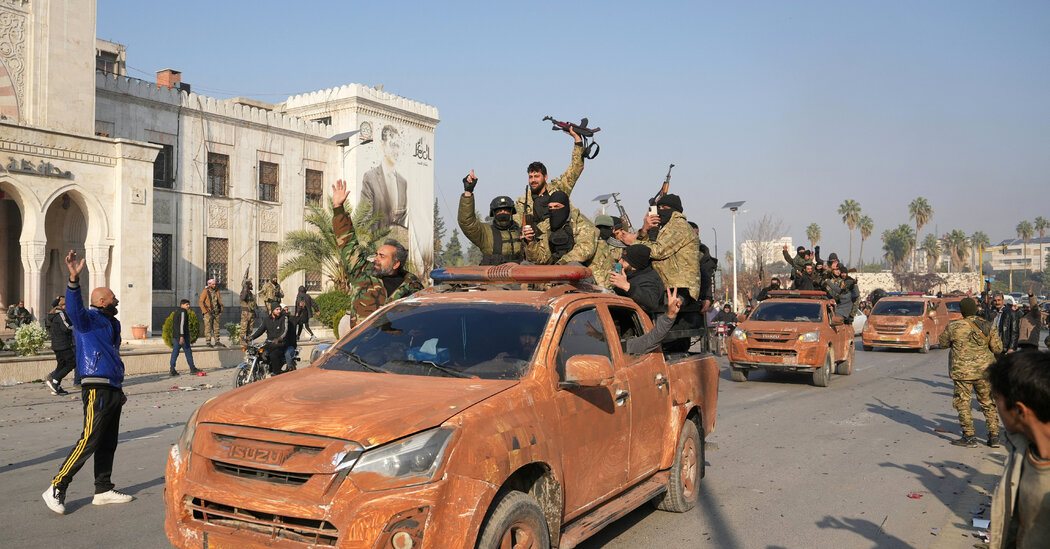Armed Rebels Advance on Damascus, Raising Stakes for Regional Powers
Footage online showed statues of the Assad dynasty crashing to the ground as rebels advanced on Damascus, the capital of Syria. The rapid advance has raised questions about whether the rebels can topple President Bashar al-Assad’s regime. The commander of the rebel alliance, Abu Mohammed al-Jolani, has stated that their goal is to liberate Syria from the oppressive regime.
The fight for Syria is considered the most important confrontation in the struggle to remake the region, which was ignited by the Hamas-led attack on Israel on October 7, 2023. The main regional players, including Israel, Iran, and Turkey, all have a stake in the outcome, which will affect not just the Middle East but also global powers like the United States and Russia.
Israel views Syria as the “hub of hubs,” a supply conduit for men and arms to places like southern Lebanon. Iran, which has propped up the Assad regime, is determined to prevent Israel from re-establishing its supply lines. Turkey, which has been a harsh critic of the Gaza war, is seeking to increase its influence in Syria and wants the three million Syrian refugees who fled to its territory to return home.
Russia, which has made bolstering the Assad regime a cornerstone of its Middle East policy, faces a dilemma: beefing up its forces in Syria would risk shortchanging its troops in Ukraine. The United States, which has not known quite what to do about Syria for more than a decade, is encouraging Americans to leave the country.
The Syrian rebels have been preparing for this offensive for more than a year and have captured two of the country’s most important cities along the north-south corridor. Iran and Hezbollah, the main forces buttressing the regime, have been seriously weakened from their fight with Israel. Russia, which used to carpet-bomb Syrian rebel strongholds, is preoccupied by its war in Ukraine and has resumed aerial bombardments in Syria on a smaller scale.
The rebel forces are now putting pressure on Homs, a city that is a little over 100 miles north of Damascus and the strategic hinge linking the country’s heartland to the Mediterranean Sea and the coastal center of the Alawites, a minority Shiite Muslim sect that dominates the regime. Civilians began to flee Homs in earnest on Friday.
Syria has relied heavily on Iranian militias for ground troops, but Israeli missile attacks on Syria have thinned the ranks of senior Iranian militia commanders and supply lines. The Kurdish forces in northeast Syria, who have long been buttressed by a contingent of about 900 U.S. troops, reportedly took control of the main border crossing that Iranian forces used to enter Syria from Iraq.
The central Syrian state is considered a hollow shell, and the Assad regime is seen as an old car put together with spare parts by unknown mechanics. Many analysts consider the regime to be unbelievably rickety and vulnerable to collapse. The outcome of the fight for Syria will have far-reaching implications for the balance of power in the region and beyond.

